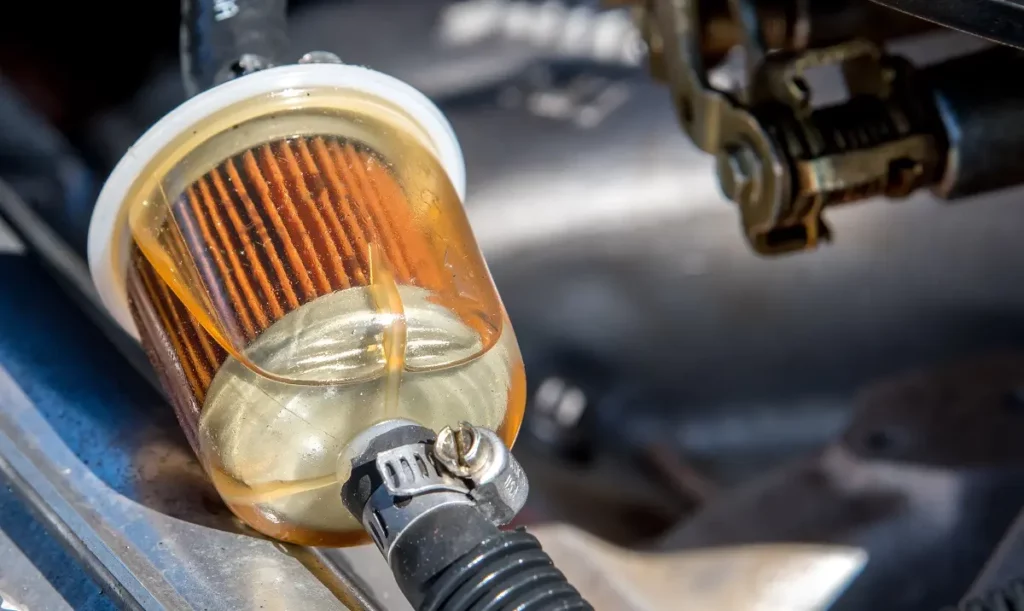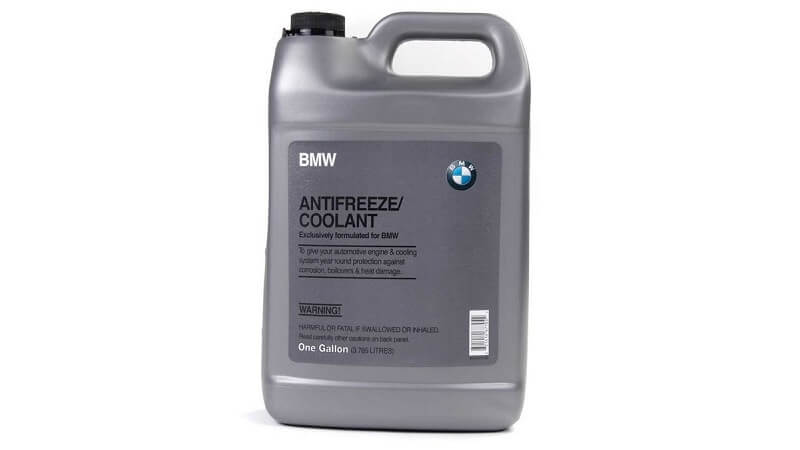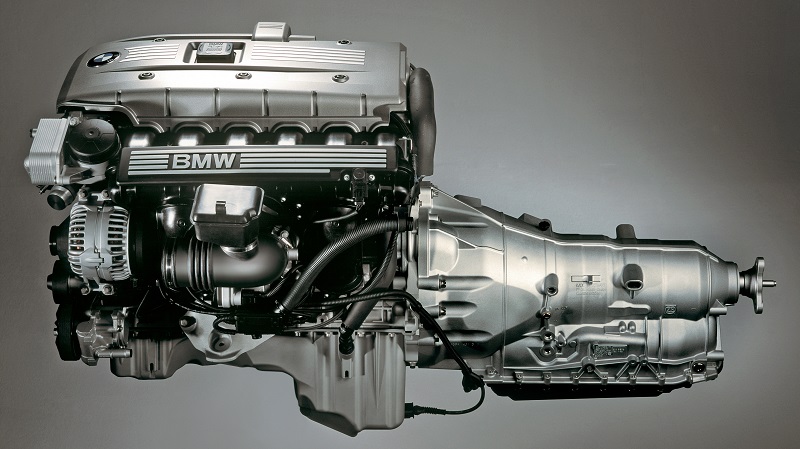When it comes to keeping your BMW running smoothly and efficiently, there are several components that play a crucial role. One such component that often goes unnoticed but holds immense importance is the fuel filter. While it may be a simple device, the fuel filter serves a vital function in your vehicle’s fuel system, ensuring that only clean and pure fuel reaches the engine.
In this guide, we will explore the world of fuel filters and why they are so crucial for the proper functioning of your vehicle. We will discuss how fuel filters work, the contaminants and impurities they filter out, and the impact they have on the overall performance and longevity of your vehicle. By the end of this post, you’ll gain a deeper understanding of why fuel filters deserve your attention and regular maintenance.

The Role of Fuel Filters in Vehicle Maintenance
Fuel filters play a pivotal role in maintaining the health of your BMW’s fuel system. Their primary function is to filter out contaminants and impurities from the fuel before it reaches the engine. As you refuel your vehicle, the fuel passes through the fuel filter, where it undergoes a thorough filtration process.
Contaminants and impurities can find their way into the fuel from various sources, such as dust, dirt, rust particles (in older BMWs with metal gas tanks), and debris present in the fuel tank or during the fueling process. Additionally, water and moisture accumulation can also occur in the fuel tank, especially during humid conditions. These impurities, if not filtered out, can have detrimental effects on the fuel injectors and other engine components.
By removing these contaminants, fuel filters prevent them from reaching the sensitive fuel injectors. Fuel injectors are designed to deliver a precise amount of fuel into the engine cylinders for combustion. When contaminants clog the injectors, they can disrupt this delicate process, leading to engine misfires, rough idling, decreased fuel efficiency, and even engine damage.
Moreover, a clogged fuel filter can restrict the fuel flow to the engine, resulting in reduced power and performance. It can also lead to difficulties in starting the engine, as the fuel may struggle to reach the combustion chamber effectively.
Regularly replacing the fuel filter is essential to maintain the efficiency and longevity of your vehicle. By ensuring a clean and pure fuel supply, fuel filters contribute to the overall performance, fuel efficiency, and reliability of your vehicle.
Common Contaminants and Impurities Found in Fuel
Fuel is susceptible to various types of contaminants and impurities that can compromise its quality and affect the performance of your vehicle’s fuel delivery system. Understanding these common contaminants is essential in recognizing the importance of fuel filters in maintaining a clean fuel supply. Here are some of the most prevalent impurities found in fuel:
Dirt, Debris, and Rust Particles
Over time, dust, dirt, and debris can accumulate in the fuel tank or enter the system during the refueling process. If you have an older BMW, rust particles can develop within the fuel tank due to corrosion. These contaminants can clog fuel injectors, obstruct fuel lines, and hinder the proper functioning of the engine.
Water and Moisture
Water and moisture are significant enemies of the fuel system. They can enter the fuel tank through condensation or as a result of contaminated fuel. Water can cause corrosion in the fuel tank, fuel lines, and injectors, leading to malfunctions and decreased performance. Furthermore, in cold weather, water can freeze and obstruct fuel flow, resulting in starting issues or even engine damage.
Sediments and Impurities
Impurities can find their way into fuel during the refining and transportation processes. These sediments can include particles of sand, rust, or other foreign substances. When these particles enter the fuel system, they can cause blockages, hinder proper fuel flow, and negatively impact the combustion process.
By filtering out these contaminants and impurities, fuel filters prevent them from reaching critical engine components, thereby preserving the integrity and efficiency of the fuel system.
Fuel Filter Types and Their Features
Fuel filters come in various types, each with its own set of features and advantages. Understanding the different types of fuel filters available will help you choose the right one for your vehicle’s specific needs. Here are some common fuel filter types and their notable features:
- Inline Fuel Filters — Inline fuel filters are the most common type and are typically installed between the fuel tank and the engine. They are designed to be compact and easy to access for maintenance and replacement. Inline filters use a cartridge-style filter element that traps contaminants as fuel passes through it.
- Cartridge Fuel Filters — Cartridge fuel filters feature a removable filter element that needs to be replaced periodically. They are designed to be more cost-effective as you only need to replace the filter element rather than the entire filter assembly. Cartridge filters offer good filtration efficiency and are commonly used in modern vehicles.
- Spin-on Fuel Filters — Spin-on fuel filters consist of a replaceable filter element encased in a metal or plastic housing. The housing is threaded and can be easily screwed onto the fuel system. Spin-on filters are convenient to install and replace, making them popular in many vehicles.
- High-Performance Fuel Filters — High-performance fuel filters are designed to meet the needs of high-performance and racing vehicles. They offer enhanced filtration capabilities, allowing them to effectively capture even the smallest particles and impurities. High-performance filters often utilize advanced filter media and construction materials for improved durability and performance.
When selecting a fuel filter, it’s essential to consider factors such as the compatibility with your vehicle’s fuel system, the filtration efficiency, and the recommended replacement interval. Additionally, it’s advisable to choose fuel filters from reputable manufacturers known for their quality and reliability.
Signs of a Clogged or Failing Fuel Filter

A clogged or failing fuel filter can have noticeable effects on your vehicle’s performance and fuel efficiency. Recognizing the common symptoms associated with a compromised fuel filter can help you address the issue promptly. Here are some signs that indicate a clogged or failing fuel filter:
- Engine Misfires — A clogged fuel filter can disrupt the fuel flow to the engine, resulting in engine misfires or hesitation during acceleration. If you notice your engine sputtering or experiencing a loss of power, it could be a sign of a clogged fuel filter.
- Rough Idling — A restricted fuel supply due to a clogged filter can cause the engine to idle roughly or unevenly. You may feel vibrations or hear unusual noises when the vehicle is at a standstill.
- Decreased Fuel Efficiency — A fuel filter that is unable to effectively filter out contaminants can impede the fuel flow and disrupt the air-to-fuel ratio. This can lead to decreased fuel efficiency, requiring you to visit the gas station more frequently.
- Starting Issues — If your vehicle struggles to start or experiences prolonged cranking before ignition, it could be due to a clogged fuel filter. No, your starter motor is probably fine. Insufficient fuel flow can hinder the starting process, leaving you stranded or requiring multiple attempts to start the engine.
- Reduced Engine Power — A clogged fuel filter restricts the amount of fuel reaching the engine, leading to reduced power output. You may notice a decrease in acceleration or difficulty maintaining higher speeds.
If you experience any of these symptoms, it is crucial to have your fuel filter inspected and replaced if necessary. Regularly inspecting and maintaining your fuel filter as part of your vehicle’s routine maintenance will help prevent these issues and ensure optimal performance.
Fuel Filter Maintenance and Replacement
Proper maintenance and timely replacement of the fuel filter are essential for maintaining a clean and efficient fuel system. Here are some guidelines to help you with fuel filter maintenance and replacement:
- Regular Inspection — It’s recommended to inspect your fuel filter periodically or as per the manufacturer’s guidelines. Check for signs of dirt, debris, or clogging. If the filter appears dirty or clogged, it’s time for a replacement.
- Replacement Interval — The replacement interval for fuel filters can vary depending on the vehicle make, model, and driving conditions. Refer to your vehicle’s owner’s manual or consult with a mechanic to determine the recommended replacement schedule. As a general guideline, fuel filters are typically replaced every 20,000 to 40,000 miles or every 2 to 4 years.
- Replacement Process — If you are comfortable with basic vehicle maintenance tasks, you can replace the fuel filter yourself. Start by locating the fuel filter, which is often found along the fuel line, near the fuel tank or engine compartment. Consult the vehicle’s service manual for specific instructions on removing and replacing the filter. Ensure that you relieve any fuel system pressure before removing the filter to avoid fuel spray. Install the new filter according to the manufacturer’s instructions, taking care to properly align and secure all connections.
- Quality Fuel Filters — When replacing your fuel filter, opt for high-quality filters from reputable manufacturers. Investing in a reliable fuel filter will ensure optimal performance and longevity.
Remember, regular maintenance and timely replacement of the fuel filter will not only help maintain fuel system efficiency but also prevent potential engine damage. Following the manufacturer’s recommendations and performing routine inspections will go a long way in keeping your vehicle running smoothly.
Importance of Using Quality Fuel
While fuel filters play a crucial role in maintaining a clean fuel system, it is equally important to use high-quality fuel in conjunction with a reliable fuel filter.
Using quality fuel is essential to prevent the introduction of contaminants and impurities into your vehicle’s fuel system. Purchase fuel from reputable and trusted sources to minimize the risk of fuel contamination. Quality fuel undergoes refining processes that reduce the presence of harmful particles, water, and other impurities that can clog fuel filters and damage the engine.
Use Only Quality Fuel Filters
Much like with any other filter in your car, the quality of the filtration media and other components is a major factor when it comes to the effectiveness of said filter. This is why it’s imperative that you use quality fuel filters in your BMW.
But, with so many options on the market, how do you determine which fuel filter is the right one for your car? The key is in sticking to trusted, reliable brands. Here are a few that you can absolutely trust to keep your BMW running on clean fuel.
Mann-Filter Fuel Filters

Mann-Filter fuel filters are designed to protect the components of injection systems from the negative effects of dirt particles and water droplets. These filters are especially effective for modern advanced fuel systems, which have stringent requirements for fuel quality. With excellent particle filtration and unique three-stage water separation, Mann-Filter fuel filters enable reliable performance even in regions with poor fuel quality.
One of the key advantages of Mann-Filter fuel filters is their consistently high water separation performance, ensuring reliable protection throughout the entire service life. These filters are available in two forms: as spin-on fuel filters, in-line filters and cartridge filters.
Mann-Filter fuel filters boast several product benefits, including their highly efficient MULTIGRADE filter media, which ensures efficient filtration. These fuel filters also exhibit high pulsation resistance and pressure stability, ensuring their durability and performance under demanding conditions. Overall, Mann-Filter fuel filters provide reliable protection and efficient fuel filtration for various applications, meeting the needs of modern injection systems.
Get a quality Mann-Filter fuel filter for your BMW!
Wix Fuel Filters

Wix fuel filters stand out for their exceptional filtration effectiveness. These filters not only stop impurities that enter the vehicle’s fuel tank but also capture rust particles, metal filings, and water (in the case of diesel engines). Wix’s extensive experience and expertise enable them to produce fuel filters that meet the stringent standards of leading car manufacturers.
A key factor that sets Wix fuel filters apart is their selection of filter media tailored to the specific requirements of each engine or vehicle manufacturer. These filter media undergo rigorous testing in modern laboratories, with over 4000 laboratory tests conducted annually in Europe alone. This ensures the efficiency and performance of the filters, providing reliable filtration for a wide range of engines.
Wix fuel filters also prioritize perfect seals to maintain the integrity of the filter and fuel system. Strong seals are crucial to prevent leaks, which can pose a fire hazard or other serious risks. Wix subjects all filter seals to stringent and extensive testing, ensuring the utmost safety and reliability of the filter.
Furthermore, Wix recognizes the importance of protecting modern injection systems. Their fuel filters are designed to meet the high technical standards required for these systems, offering features such as multi-stage water separation. This ensures efficient filtration and water separation, providing optimal protection for advanced injection systems.
Get a high-quality Wix fuel filter for your BMW!
Bosch Fuel Filters

Bosch fuel filters are trusted by millions of drivers worldwide, with over 130 million vehicles on the road relying on replaceable Bosch fuel filters. These filters play a crucial role in protecting the engine’s most expensive components by effectively filtering out foreign particles that can damage fuel injectors. By preventing such damage, Bosch fuel filters help maintain engine performance, fuel efficiency, and avoid potential engine shutdowns.
Even the smallest particles can cause significant wear and tear on an engine. Bosch fuel filters are engineered with premium quality materials and modern production methods, leveraging their expertise in the injection system to ensure optimal filtration. With a multilayered filter media that offers 99% efficiency in capturing particles, Bosch fuel filters provide reliable protection for the fuel injection system and engine.
The high dirt-holding capacity of Bosch fuel filters, capable of trapping and holding up to 15 grams of harmful particles, further reinforces their ability to safeguard fuel systems and engines. The precise and reliable connections of these fuel filters ensure 100% fuel filtration, leaving no room for contaminants to pass through.
Additionally, Bosch fuel filters feature robust filter housings made of aluminum, plastic, or surface-treated steel. These sturdy materials are designed to withstand high pressure, extending the service life of the fuel filter. By following manufacturer-specified replacement intervals, drivers can maintain high performance and prolong the life of their engines, avoiding inconvenient breakdowns and costly repairs.
Find a premium Bosch fuel filter for your car!
Mahle Fuel Filters

Mahle fuel filters are designed to meet the demands of modern fuel injection systems, ensuring a clean, homogeneous, and unrestricted fuel supply. These filters play a vital role in removing contaminants that can enter the fuel during production and transport processes. With high-quality filter media, Mahle fuel filters effectively protect the fuel system from even the smallest contaminants, safeguarding against corrosion damage and promoting efficient operation of the engine.
To achieve a constant fuel supply, Mahle fuel filters incorporate pressure regulation and recirculation of surplus fuel from the injection pump back to the tank. This helps maintain the required fuel pressure and flow rate, ensuring optimal performance of the fuel system. Furthermore, the filters feature pulsation damping, which compensates for pressure fluctuations caused by the fuel pump. This helps maintain stable fuel pressure, promoting smooth engine operation.
Mahle fuel filters are designed to meet the high safety standards set by automobile manufacturers. They provide secure sealing, even in the event of accidents or harsh operating conditions, ensuring reliable and leak-free performance. However, it’s essential to follow the maintenance intervals specified by the vehicle manufacturer for optimal functionality of the fuel filters. Regular replacement of the filters helps maintain their effectiveness and ensures the continued protection of the fuel system and engine.
Get a Mahle fuel filter for your BMW!
Get High-Quality Fuel Filters at Bimmers.com!
Fuel filters are an integral part of your vehicle’s fuel system, playing a vital role in maintaining a clean and efficient fuel supply to the engine. By filtering out contaminants and impurities, fuel filters protect the fuel injectors and engine components from damage, ensuring optimal performance, fuel efficiency, and longevity of your vehicle.
Understanding the common contaminants found in fuel and the signs of a clogged or failing fuel filter allows you to recognize when it’s time for maintenance or replacement. Regular inspection and timely replacement of the fuel filter, following the manufacturer’s recommendations, are crucial steps in maintaining a healthy fuel system. Here at Bimmers.com, we carry a wide range of high-quality fuel filters for your BMW. Head over to our store, select your car from the list, and find a fuel filter that is a guaranteed fit!





